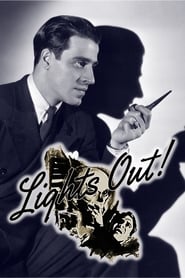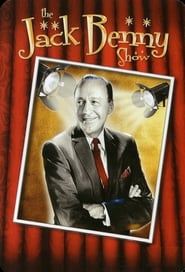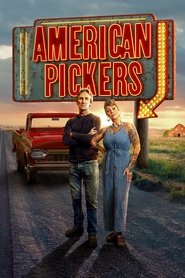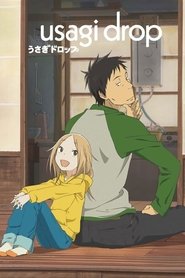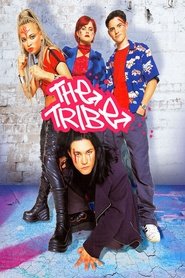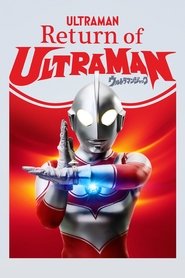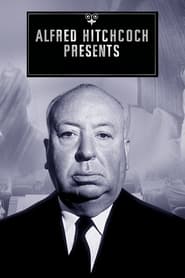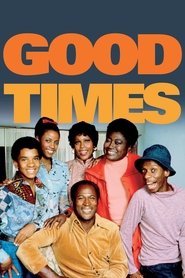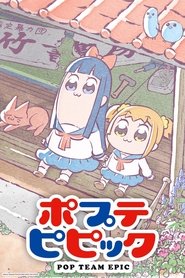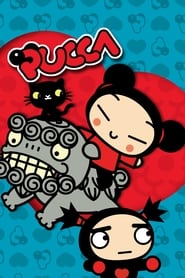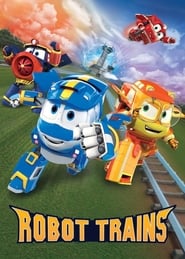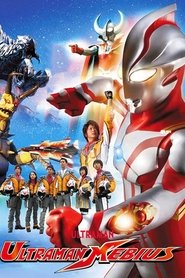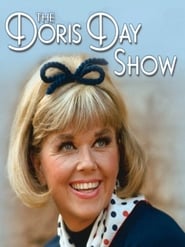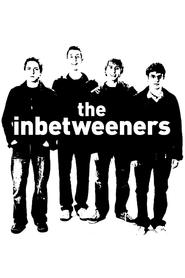Popular Talk TV Series on Tubi TV - Page 17
-
Lights Out
1949
Lights Out
1949
star 5.3Lights Out was an extremely popular American old-time radio program, an early example of a network series devoted mostly to horror and the supernatural, predating Suspense and Inner Sanctum. Versions of Lights Out aired on different networks, at various times, from January 1934 to the summer of 1947 and the series eventually made the transition to television. In 1946, NBC Television brought Lights Out to TV in a series of four specials, broadcast live and produced by Fred Coe, who also contributed three of the scripts. NBC asked Cooper to write the script for the premiere, "First Person Singular", which is told entirely from the point of view of an unseen murderer who kills his obnoxious wife and winds up being executed. Variety gave this first episode a rave review ("undoubtedly one of the best dramatic shows yet seen on a television screen"), but Lights Out did not become a regular NBC-TV series until 1949. -
Father Knows Best
1954
Father Knows Best
1954
star 6.5Family man Jim Anderson copes with the everyday problems among his wife Margaret and their three children as they experience day-to-day changes. -
The Jack Benny Program
1950
star 7.8Laugh along with funnyman Jack Benny as he brings his underplayed humor to TV along with regular performers from his radio show days. -
American Pickers
2010
American Pickers
2010
star 6.9Pickers like Mike Wolfe and Frank Fritz are on a mission to recycle America, even if it means diving into countless piles of grimy junk or getting chased off a gun-wielding homeowner’s land. Hitting back roads from coast to coast, the two men earn a living by restoring forgotten relics to their former glory, transforming one person’s trash into another’s treasure. -
Usagi Drop
2011
Usagi Drop
2011
star 8.1By force of circumstances, a 30-year-old single man with a full-time job suddenly starts raising a 6-year-old girl. While running each other ragged, the two of them gradually grow into a "family". -
The Red Green Show
1991
The Red Green Show
1991
star 7.3The Red Green Show is a Canadian television comedy that aired on various channels in Canada, with its ultimate home at CBC Television, and on Public Broadcasting Service stations in the United States, from 1991 until the series finale April 7, 2006, on CBC. The Red Green Show is essentially a cross between a sitcom and a sketch comedy series, and is a parody of home improvement, do-it-yourself, fishing, and other outdoors shows. -
The Tribe
1999
The Tribe
1999
star 6.9The Tribe is a New Zealand/British post-apocalyptic fictional TV series primarily aimed at teenagers. It is set in a near-future in which all adults have been wiped out by a deadly virus, leaving the children of the world to fend for themselves. The show's focus is on an unnamed city inhabited by tribes of children and teenagers. It was primarily filmed in and around Wellington, New Zealand. The series was created by Raymond Thompson and Harry Duffin and was developed and produced by the Cloud 9 Screen Entertainment Group in conjunction with the UK's Channel 5. It has aired on over 40 broadcast networks around the world. -
Return of Ultraman
1971
Return of Ultraman
1971
star 8.6In a fight between two giant monsters named Takkong and Zazahn, young race car driver Hideki Go is killed while trying to rescue a little boy and a dog from the falling rubble. His valiant sacrifice is noted by everyone, even his friends and the new defense force MAT, but an unseen being also takes notice. Looking over Go is the "New Ultraman", who is so touched by Go's actions that he decides to combine his life force with that of Hideki, thus bringing him back to life. Hideki Go then joins the MAT and fights alongside them and Ultraman against monsters and alien invaders. -
Alfred Hitchcock Presents
1955
star 7.8A television anthology series hosted by Alfred Hitchcock featuring dramas, thrillers, and mysteries. -
Good Times
1974
Good Times
1974
star 8Good Times is an American sitcom that originally aired from February 8, 1974, until August 1, 1979, on the CBS television network. It was created by Eric Monte and Mike Evans, and developed by Norman Lear, the series' primary executive producer. Good Times is a spin-off of Maude, which is itself a spin-off of All in the Family along with The Jeffersons. The series is set in Chicago. The first two seasons were taped at CBS Television City in Hollywood. In the fall of 1975, the show moved to Metromedia Square, where Norman Lear's own production company was housed. -
My Heroic Husband
2021
My Heroic Husband
2021
star 7Ning Yi, a determined woman from a cold background, grows through poetry, business, and martial arts, taking on increasing responsibilities and, with the help of her friends and family, using courage and wisdom to protect Lin An. -
Pop Team Epic
2018
Pop Team Epic
2018
star 7Crude, rude, and a little…cute? Get ready for the larger-than-life attitude of Popuko and Pipimi, the small and tall stars of Pop Team Epic! Based off the bizarre four-panel webcomic by Bukubu Okawa comes a comedy that’ll throw you off with its out-there jokes and intense absurdity. You think you’re ready for these girls? Think again, F#%**er! -
Saving Hope
2012
Saving Hope
2012
star 7When Charlie Harris ends up in a coma, he leaves the Hope-Zion Hospital in chaos - and his fiancée and fellow surgeon, Alex Reid, in a state of shock. As the staff of Hope-Zion races to save lives, comatose Dr. Harris wanders the halls of Hope-Zee in "spirit" form, not sure if he's a ghost or a figment of his own imagination. -
Pucca
2006
Pucca
2006
star 8.2"Pucca" is a TV series based on a Flash animation series published by Vooz Character Systems. It follows the trails and exploits of a South Korean girl named Pucca who is insanely in love with a prideful ninja named Garu. Meanwhile, Garu and Pucca help their town of Sooga Village out when evil ninjas attack, as well as diffuse a lot of the absurd situations that frequently plague the town. This show could best be described as a cleaned-up version of South Park meets Looney Tunes meets Naruto. There is some very subtly hidden adult humor; but most of the adult jokes would not go noticed by small children, who are the primary audience. -
Robot Trains
2015
Robot Trains
2015
star 5.7Set in the "Train World" where all citizens are trains. However, among the residents there are special trains that can transform into robots, the Robot Trains! Featuring our 5 train heroes, with special powers: Kay, Alf, Duck, Selly and Victor - and their exciting adventures. Can the Robot Trains save the village from the evil dark forces that be? -
Ultraman Mebius
2006
Ultraman Mebius
2006
star 8.5Ultraman Mebius is a Japanese television series produced by Tsuburaya Productions and Chubu-Nippon Broadcasting. It is the 17th TV series and 40th anniversary production in the Ultra Series, which first began in 1966. It premiered on the Tokyo Broadcasting System on April 8, 2006. Unlike the two prior entries, Ultraman Nexus and Ultraman Max, Mebius was moved from Saturday mornings to Saturday evenings at 05:30. "Mebius" is the Japanese approximation of Möbius; the Möbius strip is a recurring motif in the series and the show going to air in Korea in April 2012. The series opens with the introduction of the rookie Ultraman Mebius, who is sent to Earth by the Father of Ultra. The series is set 40 years after the shows of Ultraman, and makes many references from Ultra Q through to Ultraman 80. -
Blue Mountain State
2010
Blue Mountain State
2010
star 7.6Three incoming freshman in a big-time, Midwestern college football program have to juggle football, girls, class and nonstop hazing. -
Accused
2023
Accused
2023
star 7.1In this crime anthology series, viewers discover how an ordinary person got caught up in an extraordinary situation, ultimately revealing how one wrong turn leads to another, until it’s too late to turn back. Told from the defendant’s point of view, each episode opens in a courtroom on the accused without knowing their crime or how they ended up on trial. -
The Doris Day Show
1968
The Doris Day Show
1968
star 5.3The Doris Day Show is an American sitcom that was originally broadcast on the CBS network from September 1968 until March 1973, remaining on the air for five seasons and 128 episodes. In addition to showcasing Doris Day, the show is remembered for its many abrupt format changes over the course of its five-year run. It is also remembered for Day's statement, in her autobiography Doris Day: Her Own Story, that her husband Martin Melcher had signed her to do the TV series without her knowledge, a fact she only discovered when Melcher died of heart disease on April 20, 1968. The TV show premiered on Tuesday, September 24, 1968. -
The Inbetweeners
2008
The Inbetweeners
2008
star 7.6Those who remember the awkward years of adolescence can relive those painful days in this British comedy series, where the cringe-inducing humor arises from the ill-fated antics of its four protagonists. Suburban teenage friends Will, Simon, Jay and Neil, students at Rudge Park Comprehensive, attempt to navigate the social scene, attract members of the gentler sex, and saunter among the cool crowd. However, despite their best efforts, the four hapless lads usually end up on the side of the nerds.
 Netflix
Netflix
 Amazon Prime Video
Amazon Prime Video
 Apple iTunes
Apple iTunes
 Apple TV Plus
Apple TV Plus
 Disney Plus
Disney Plus
 Google Play Movies
Google Play Movies
 Paramount Plus
Paramount Plus
 Hulu
Hulu
 HBO Max
HBO Max
 YouTube
YouTube
 fuboTV
fuboTV
 Peacock
Peacock
 Peacock Premium
Peacock Premium
 Amazon Video
Amazon Video
 The Roku Channel
The Roku Channel
 AMC+
AMC+
 Kocowa
Kocowa
 Hoopla
Hoopla
 The CW
The CW
 Vudu
Vudu
 Starz
Starz
 Showtime
Showtime
 PBS
PBS
 Pantaflix
Pantaflix
 FXNow
FXNow
 Tubi TV
Tubi TV
 Kanopy
Kanopy
 Comedy Central
Comedy Central
 Crunchyroll
Crunchyroll
 Microsoft Store
Microsoft Store
 Redbox
Redbox
 Sun Nxt
Sun Nxt
 ABC
ABC
 DIRECTV
DIRECTV
 Crackle
Crackle
 Fandor
Fandor
 Plex
Plex
